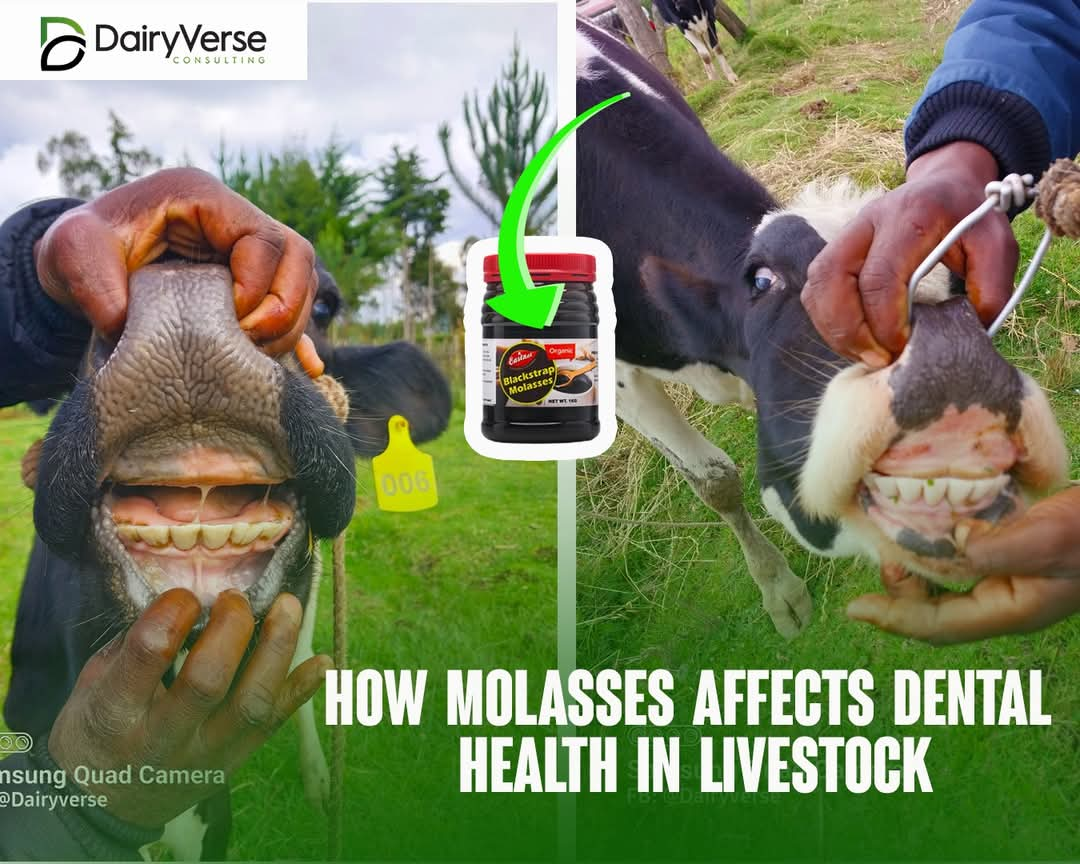Address
304 North Cardinal
St. Dorchester Center, MA 02124
Work Hours
Monday to Friday: 7AM - 7PM
Weekend: 10AM - 5PM
Address
304 North Cardinal
St. Dorchester Center, MA 02124
Work Hours
Monday to Friday: 7AM - 7PM
Weekend: 10AM - 5PM
Molasses, a popular feed supplement for livestock, is widely used due to its numerous benefits, including improving feed palatability, increasing energy intake, and promoting better nutrient absorption. However, like all feed additives, it has its potential drawbacks, one of which includes its impact on dental health

Molasses, a popular feed supplement for livestock, is widely used due to its numerous benefits, including improving feed palatability, increasing energy intake, and promoting better nutrient absorption. However, like all feed additives, it has its potential drawbacks, one of which includes its impact on dental health.
The Composition of Molasses
Molasses is a byproduct of sugar production, rich in carbohydrates (primarily sucrose), vitamins, and minerals like potassium, calcium, and magnesium. Its high sugar content is what makes it an effective energy booster and a palatability enhancer in livestock diets. However, this same sugar content can pose risks to dental health.
How Molasses Affects Dental Health
Sugar and Dental Decay:
The high sugar concentration in molasses creates an ideal environment for bacteria to thrive in the animal’s mouth.
These bacteria break down sugars into acids, which can erode the enamel (the hard outer layer of teeth) and cause dental decay over time.
Plaque Build-Up:
The sticky texture of molasses can adhere to teeth, promoting the formation of plaque. If not naturally cleaned, plaque can harden into tartar, leading to gum inflammation and eventual dental issues.
Wear and Tear:
While molasses itself is not abrasive, mixing it with fibrous feed or roughage can sometimes lead to uneven wear on teeth, especially in older livestock.
Indirect Effects:
Poor dental health caused by prolonged exposure to sugary feeds may result in difficulty chewing, reduced feed intake, and decreased nutrient absorption, ultimately affecting overall health and productivity.
Signs of Dental Issues in Livestock
Difficulty Chewing: Animals may chew more slowly or drop feed while eating.
Weight Loss: Inability to chew properly leads to reduced feed intake and weight loss.
Drooling or Bad Breath: Indicators of oral infections or tooth decay.
Behavioral Changes: Livestock may appear irritable or refuse feed due to dental discomfort.

Preventing and Mitigating Dental Issues
To ensure that molasses remains a beneficial feed supplement without compromising dental health, the following strategies can be employed:
Moderation in Usage:
Limit molasses intake to recommended levels (2-3% of the total dry matter diet) to prevent excessive sugar exposure
Balanced Diet:
Combine molasses with fibrous feed like hay or silage to encourage natural cleaning of the teeth through chewing.
Regular Access to Clean Water:
Providing constant access to clean water helps rinse off any sugar residues from the teeth, reducing the risk of plaque build-up.
Regular Dental Checks:
Schedule routine dental inspections for livestock, especially older animals, to detect and address potential dental issues early.
Additives for Dental Health:
Consider feed additives that promote oral health, such as minerals that strengthen enamel or ingredients that prevent bacterial growth.
Feeding Time Management:
Avoid feeding molasses continuously throughout the day; instead, offer it in measured portions to reduce prolonged exposure to sugar.
While molasses is a valuable addition to livestock diets, its high sugar content and sticky texture can contribute to dental health challenges if not used carefully. By adhering to proper feeding practices, providing a balanced diet, and monitoring livestock health regularly, farmers can enjoy the benefits of molasses while mitigating potential risks to dental health.
A well-balanced approach ensures livestock remain healthy, productive, and free from preventable dental issues.